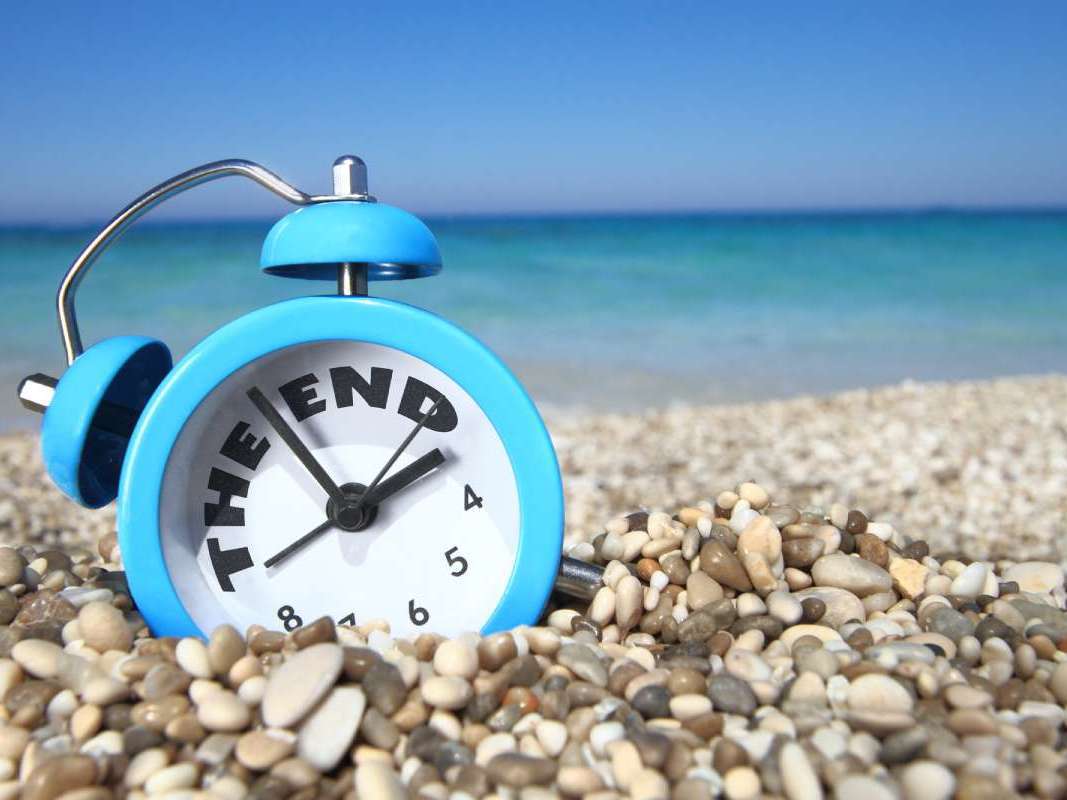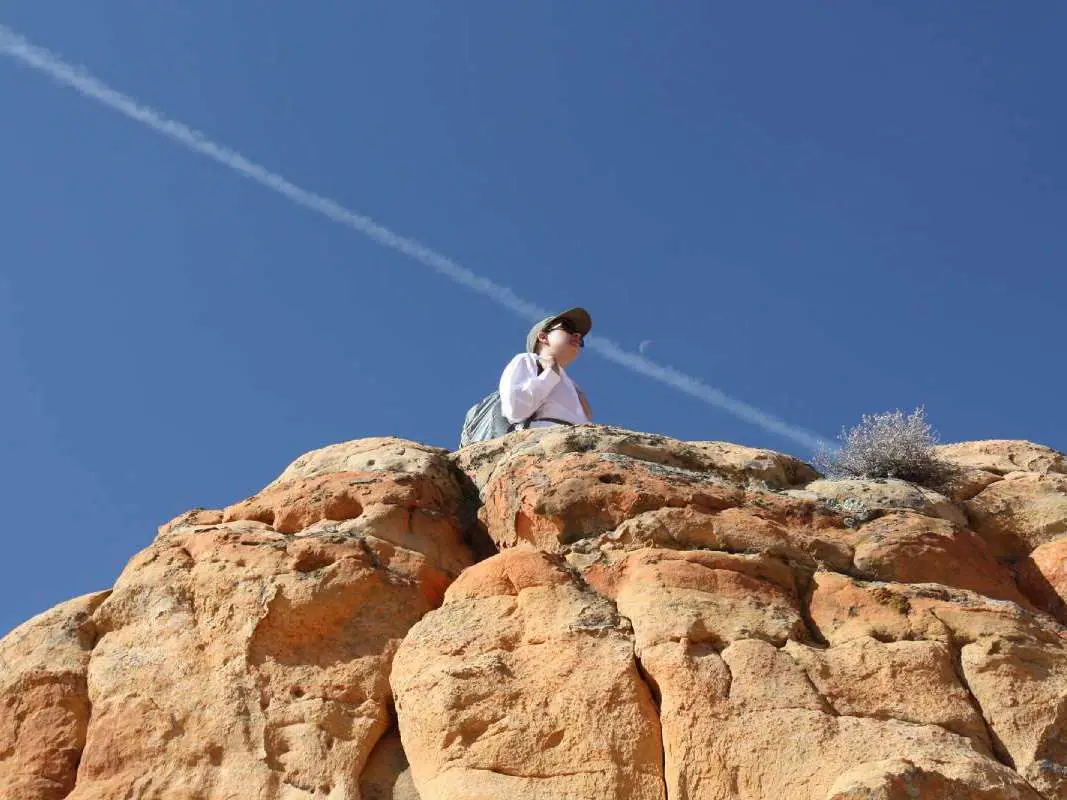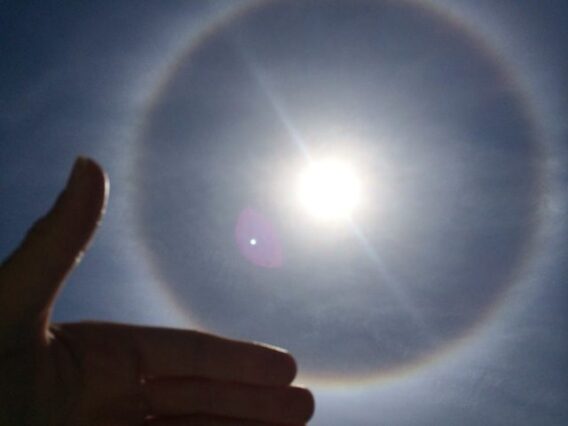
When does summer officially end?
It’s a question that so many ask, often with dread… Especially when summer means vacations, school break, time by the lake or at the beach, and a reprieve from the cold days of late fall through early spring.
But a lot of folks seem confused by when the last day of summer really happens.
Sure, the calendar tells us one thing, but astronomy tells us something else.
And then there’s school… These days, it seems that summer ends way earlier than it used to for many students.
So, while it may seem as easy as looking at the calendar or typing into a search engine the phrase “when does summer end” to get your answer, here’s the definitive answer you’re looking for…
How Meteorologists Determine When Summer Ends
In the astronomical sense, summer begins with the summer solstice (which usually occurs between June 20 and June 22 in the Northern Hemisphere) and ends with the autumn equinox (which falls between September 21 and September 24).

Your current calendar will tell you exactly what day summer officially begins and ends this year — but meteorological summer is counted as the entire months of June, July, and August.
On September 1st, it’s meteorological fall — weeks before the arrival of the autumn equinox later in the month.
How Others Determine The End Of Summer
It used to be that school let out just before Memorial Day weekend and began just after Labor Day. No longer… In many places, summers have been getting shorter and shorter for children — and their teachers — for decades now.
In some places, it seems summer never ends at all — such as on the beaches of the Hawaiian islands. In Florida, people can sometimes swim in their pools on Thanksgiving or Christmas day! (But make no mistake, it really does get cold in Florida. And it even snows there sometimes, too.)
Many folks would say summer starts on Memorial Day weekend and ends on Labor Day. (Though some of these individuals might also celebrate Christmas in July!)
July is like Christmastime for theme park fans, who spend their summers riding roller coasters from sea to shining sea. But when the seasonal theme parks (the ones that usually close during the coldest months) start cutting back on their daily hours and advertising weekend evening Halloween fright fests, you can be pretty much assured summer is over — or motioning its lasts gasps.
Chambers of commerce in certain regions of the United States might define summer as a period of peak tourist activity, or when sales are highest for restaurants, shops, and motels near the beach or other attractions during the middle point of the year. When summer revenues start tipping back down, summer is over for them.
And there might be other arbitrary landmarks people use for declaring the end of summer. Maybe it’s when they experience the first cold morning in late August, September, or even as late as October under 40, 50, or 60 degrees, depending on exactly where they’re living.
Or it could be when the leaves start changing color, If you enjoy the outdoors, and start to notice the leaves changing colors then that’s when summer ends.
If you remember the way TV used to be… summer was always the season of reruns for sitcoms. So when the fall season premieres started reappearing on the television, that was when summer was over — at least in TV Land.
In the world of fashion, the end of summer means no more bathing suits, no more tank tops, and no more shorts. And in department stores and clothing boutiques (which usually need to stay a step ahead of the seasons), you might start seeing the summertime clothes disappear from the racks just a little after the Fourth of July and right before the Back-to-School sales.
And if you’re a young person or the parent of one, you know that the start of Back-to-School sales pretty much declares the end of summer. Womp womp…
Nature lovers might define the end of summer as when certain warm-weather creatures start disappearing from the scene — or when fuzzy ones begin stockpiling food resources for the winter.
Sports fan? You might mark the end of summer as the first day of regular-season professional football or hockey action. Or perhaps when the number of golf tournaments begin dwindling on the calendar.
There may be other personal, societal, traditional, or cultural connections that you have for declaring when summer really ends. But if you’re looking for the scientific answer… it generally does come down to the meteorological and astronomical definitions of how long the summer season lasts and when in the year it occurs.
Astronomical Summer vs. Meteorological Summer
Want to understand a little more about the differences between astronomical and meteorological summer?
Before we get into that, let’s look at why there are seasons here on Earth to begin with:
As you can see, the different seasons occur based on the Earth’s tilt relative to the Sun and the angle of sunlight on the surface of the Earth at different points throughout the year.
The Sun is at its highest angle over the hemisphere of Earth experiencing summer — and that’s also when that portion of the planet sees its longest days and shortest nights. (Or, in the case of the polar regions… when the sun may not set at all for many days in a row.)
So there’s your answer… according to astronomy.
Just remember that the summer has nothing to do with how close the Earth is to the Sun. We are almost 3 million miles closer to the sun during the winter (in the Northern Hemisphere) than on the Summer Solstice!
So, what about meteorological summer? And when does meteorological summer end?
For that, let’s go to one of the experts:
Astronomical summer has everything to do with Earth’s tilt relative to the Sun, whereas meteorological summer — June, July, and August — corresponds to the hottest months of the year.
So, When Does Summer End For You?
You now know the differences between astronomical summer and meteorological summer and when they begin and end — but what does this mean to you?
When does summer end in your world?
It seems that summer means different things to different people. But most agree that summer is one of the best times of year for going on vacations, hitting the beach, enjoying cookouts, or simply lounging around the yard and basking in the sun.
Or, if you don’t like the heat so much, maybe it’s the time of year you hibernate inside while waiting for your pumpkin-spiced coffees and brisk fall mornings to arrive!
I'm a weather geek from Florida who's been studying meteorology and watching weather patterns for years! I enjoy sharing little-known facts and fun stuff about the weather. I especially like sharing interesting details about weather events and conditions that can affect you… and how to prepare for Mother Nature's ever-changing weather patterns.





